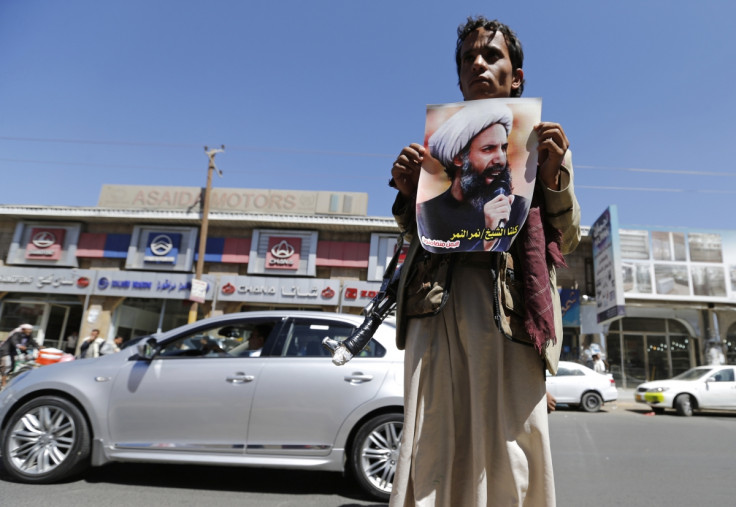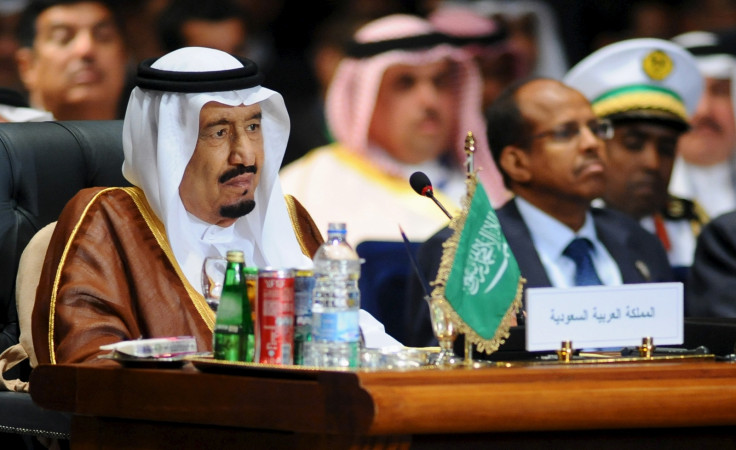Ali Mohammed Al-Nimr: Why does Saudi Arabia behead and crucify prisoners?

On 21 May 2013, grainy pictures emerged on social media of five decapitated bodies hanging upside down outside the University of Jizan in Saudi Arabia. The Yemenis had been beheaded and crucified for their part in an armed robbery that led to the death of a Saudi man.
The crucifixion aspect of the sentence was court ordered, Amnesty International reported following the release of the pictures, as a deterrent to others. It was the only documented account of crucifixion taking place in the kingdom, the NGO told IBTimes UK, despite the punishment being enshrined in Saudi Arabia's penal code.
Saudi Arabia's use of crucifixion – hadd al-haraba in Arabic – came up again in 2014 when Saudi cleric Sheikh Nimr Baqir al-Nimr was sentenced to be beheaded and crucified as a punishment for "waging war on God" and encouraging pro-democracy protests against the Saudi authorities in the restive eastern province, which is home to the country's substantial Shia minority and saw violent protests in the wake of the 2011 Arab Spring.
It has been highlighted once again after Ali Mohammed al-Nimr, Sheikh Nimr's nephew, lost his appeal against a death sentence following his arrest in 2012.
Al-Nimr's case received worldwide attention and even a week after the story appeared, it was trending on social media. His mother and father have both been active on Twitter in the wake of his sentence and his case was highlighted by both US talk show host Bill Maher and the UN, which issued an urgent statement on 22 September calling for the execution to be halted.
Al-Nimr, who was 17 when he was arrested and convicted, had taken part in protests against the authorities but was also charged with a range of offences including attacking police officers and forming an armed gang. It is these more serious charges that are thought to have led to the crucifixion aspect of his sentence, as hadd al-haraba has traditionally been reserved for criminals – such as the Yemeni men – rather than political activists.
Like public beheading – widely carried out in Saudi Arabia – and the displaying of severed heads in public squares after the sentence is carried out, crucifixion (which takes place after death in Saudi law, not before) is designed to warn others from breaking the law. The cases of Al-Nimr and Sheikh Nimr appear to be the first time that political activists have been sentenced to crucifixion rather than just beheading.
It is unclear, say NGOs, when and why Saudi Arabia use crucifixion as a punishment, but there are references to it in the Quran, which reads: "The punishment of those who wage war against Allah and His Messenger, and strive with might and main for mischief through the land is: execution, or crucifixion, or the cutting off of hands and feet from opposite sides, or exile from the land (Qur'an 5:33)".
Saudi Arabia is ruled by strict form of Islam known as Wahhabism, after scholar and cleric Mohammed ibn Abdul-Wahhab, who formed an extreme revivalist movement in the heart of Saudi Arabia's Najd desert in the 17<sup>th century. Abdul-Wahhab and his followers formed a political alliance with the al-Saud family, which enabled Ibn Saud to conquer most of the Arabian Peninsula and establish Saudi Arabia in 1932.
The link between Wahhabism and the al-Saud family lasts to this day, and King Salman Abdulaziz, like his brothers before him, have had to placate the radical Wahhabis of the Najd and elsewhere in Saudi Arabia in order to keep their grip on power. Maintaining barbaric and medieval forms of punishment such as beheading and crucifixion, public flogging and restrictions on women driving are all part of this process.
Under Salman, a king who has always been considered to be more religious and closer to the radical Wahhabis in Saudi Arabia, the use of the death penalty in Saudi Arabia has ballooned, with Amnesty estimating at least 134 people have been executed so far in the kingdom in 2015 compared with just 90 executed in 2014. It claimed in a recent report that the Saudi justice system "lacks even the basic precautions to ensure a fair trial".

It has been pointed out that although hundreds have been put to death for crimes including murder, rape and drugs offences, Saudi Arabia has not executed a political prisoner for decades, but Al-Nimr's case comes at a time when divisions between Sunni and Shia in the Middle East is at an historic low. Saudi Arabia has been shocked by the rising influence of Iran in Iraq as well as Tehran's nuclear deal with the US and Europe.
Al-Nimr and his uncle's role as prominent Shia activists in Saudi Arabia's eastern province – which, let us not forget, is home to all but a fraction of the kingdom's massive oil reserves – is made all the more political given the long-held suspicion that Shia Iran has a hand in the unrest in Saudi Arabia. The case comes as Saudi Arabia is embroiled in a bloody war in Yemen against Shia Houthi rebels, backed by Iran.
As a result, the two men – and others being held with them – are at the mercy of a far larger political quagmire.
But equally, the case comes at a time when Saudi Arabia is undoubtedly trying to boost its profile, recently lobbying for a place on the UN Human Rights Council – which it later abandoned. The outcry that Al-Nimr's sentence has caused on the international stage – with UN experts wading in – may persuade King Salman that executing a young man amid claims of widespread alleged human rights abuses in Qatif will not help Riyadh's case for a greater role on the world stage.
© Copyright IBTimes 2025. All rights reserved.






















